Abstract:
We present the outcomes of a recent large-scale subjective study of Mobile Cloud Gaming Video Quality Assessment (MCG-VQA) on a diverse set of gaming videos. Rapid advanc...Show MoreMetadata
Abstract:
We present the outcomes of a recent large-scale subjective study of Mobile Cloud Gaming Video Quality Assessment (MCG-VQA) on a diverse set of gaming videos. Rapid advancements in cloud services, faster video encoding technologies, and increased access to high-speed, low-latency wireless internet have all contributed to the exponential growth of the Mobile Cloud Gaming industry. Consequently, the development of methods to assess the quality of real-time video feeds to end-users of cloud gaming platforms has become increasingly important. However, due to the lack of a large-scale public Mobile Cloud Gaming Video dataset containing a diverse set of distorted videos with corresponding subjective scores, there has been limited work on the development of MCG-VQA models. Towards accelerating progress towards these goals, we created a new dataset, named the LIVE-Meta Mobile Cloud Gaming (LIVE-Meta-MCG) video quality database, composed of 600 landscape and portrait gaming videos, on which we collected 14,400 subjective quality ratings from an in-lab subjective study. Additionally, to demonstrate the usefulness of the new resource, we benchmarked multiple state-of-the-art VQA algorithms on the database. The new database will be made publicly available on our website: https://live.ece.utexas.edu/research/LIVE-Meta-Mobile-Cloud-Gaming/index.html
Published in: IEEE Transactions on Image Processing ( Volume: 32)
Funding Agency:
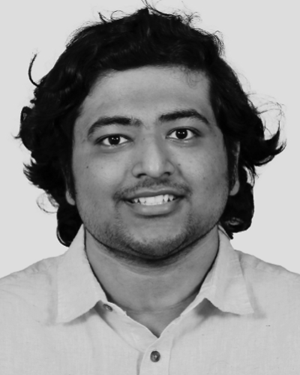
Department of Electrical and Computer Engineering, The University of Texas at Austin, Austin, TX, USA
Avinab Saha received the Bachelor of Technology degree (Hons.) in electronics and electrical communication engineering from the Indian Institute of Technology Kharagpur, India, in 2019. He is currently pursuing the Ph.D. degree with the Department of Electrical and Computer Engineering, The University of Texas at Austin. He joined the Laboratory for Image and Video Engineering (LIVE), The University of Texas at Austin, in...Show More
Avinab Saha received the Bachelor of Technology degree (Hons.) in electronics and electrical communication engineering from the Indian Institute of Technology Kharagpur, India, in 2019. He is currently pursuing the Ph.D. degree with the Department of Electrical and Computer Engineering, The University of Texas at Austin. He joined the Laboratory for Image and Video Engineering (LIVE), The University of Texas at Austin, in...View more
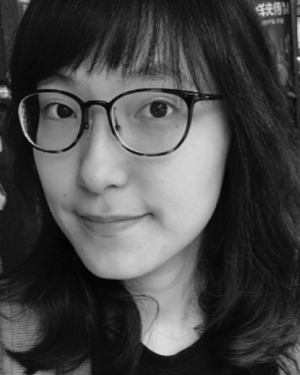
Department of Electrical and Computer Engineering, The University of Texas at Austin, Austin, TX, USA
Yu-Chih Chen received the B.S. degree in computer science and information engineering from the National Taiwan University of Science and Technology, Taipei, Taiwan, in 2017, and the M.S. degree in engineering science and ocean engineering from National Taiwan University, Taipei, in 2019. She is currently pursuing the Ph.D. degree with the Laboratory for Image and Video Engineering (LIVE), The University of Texas at Austin...Show More
Yu-Chih Chen received the B.S. degree in computer science and information engineering from the National Taiwan University of Science and Technology, Taipei, Taiwan, in 2017, and the M.S. degree in engineering science and ocean engineering from National Taiwan University, Taipei, in 2019. She is currently pursuing the Ph.D. degree with the Laboratory for Image and Video Engineering (LIVE), The University of Texas at Austin...View more
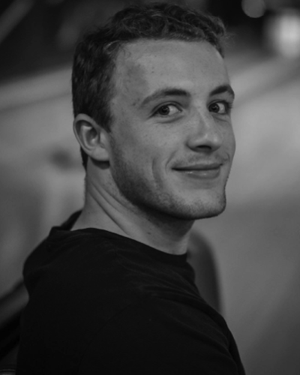
Meta Platforms Inc., Menlo Park, CA, USA
Chase Davis is currently a Product Manager of Meta Platforms Inc., working on media infrastructure, graphics, and real-time technologies for games and video streaming. His past works involve remote rendering, low-latency streaming, edge computing, and distributed media caching systems at scale.
Chase Davis is currently a Product Manager of Meta Platforms Inc., working on media infrastructure, graphics, and real-time technologies for games and video streaming. His past works involve remote rendering, low-latency streaming, edge computing, and distributed media caching systems at scale.View more

Meta Platforms Inc., Menlo Park, CA, USA
Bo Qiu received the Ph.D. degree in nanomaterials engineering from Purdue University. He is currently a Software Engineer with Meta Platforms Inc. His recent work spans cloud gaming, pixel quality metrics, realistic avatars, VR/AR, and GenAI. Prior to Meta, he worked with Intel as a Software Architect and Qualcomm as a Product Design Engineer. Before joining the industry, he was a Postdoctoral Associate in nanomaterials e...Show More
Bo Qiu received the Ph.D. degree in nanomaterials engineering from Purdue University. He is currently a Software Engineer with Meta Platforms Inc. His recent work spans cloud gaming, pixel quality metrics, realistic avatars, VR/AR, and GenAI. Prior to Meta, he worked with Intel as a Software Architect and Qualcomm as a Product Design Engineer. Before joining the industry, he was a Postdoctoral Associate in nanomaterials e...View more
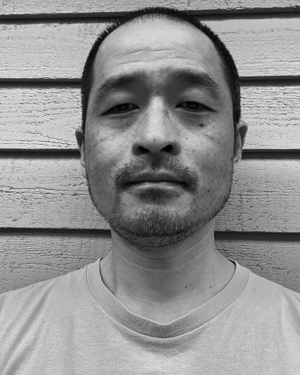
Meta Platforms Inc., Menlo Park, CA, USA
Xiaoming Wang received the B.S. degree in computer science and the M.S. degree in electronic engineering from the Beijing University of Posts and Telecommunications, Beijing, China, in 1999 and 2002, respectively, and the Ph.D. degree in computer science from Texas A&M University, College Station, in 2009. He is currently working with Meta Platforms Inc., Menlo Park, CA, USA. His research interests include peer-to-peer sy...Show More
Xiaoming Wang received the B.S. degree in computer science and the M.S. degree in electronic engineering from the Beijing University of Posts and Telecommunications, Beijing, China, in 1999 and 2002, respectively, and the Ph.D. degree in computer science from Texas A&M University, College Station, in 2009. He is currently working with Meta Platforms Inc., Menlo Park, CA, USA. His research interests include peer-to-peer sy...View more
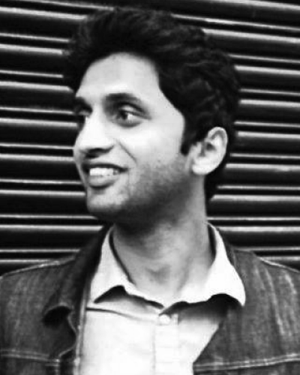
Meta Platforms Inc., Menlo Park, CA, USA
Rahul Gowda received the M.S. degree from Arizona State University, Tempe, AZ, USA, in 2009. He is currently with Meta Platforms Inc., Menlo Park, CA, USA. His research interests include scaling rich interactive metaverse and XR experiences, digital humans, and XR systems.
Rahul Gowda received the M.S. degree from Arizona State University, Tempe, AZ, USA, in 2009. He is currently with Meta Platforms Inc., Menlo Park, CA, USA. His research interests include scaling rich interactive metaverse and XR experiences, digital humans, and XR systems.View more
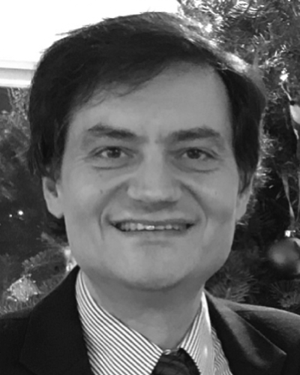
Meta Platforms Inc., Menlo Park, CA, USA
Ioannis Katsavounidis (Senior Member, IEEE) is currently a part of the Video Infrastructure Team, leading technical efforts in improving video quality and quality of experience across all video products with Meta. Before joining Meta, he spent three and half years with Netflix, contributing to the development and popularization of VMAF, Netflix’s open-source video quality metrics, and inventing the dynamic optimizer, a sh...Show More
Ioannis Katsavounidis (Senior Member, IEEE) is currently a part of the Video Infrastructure Team, leading technical efforts in improving video quality and quality of experience across all video products with Meta. Before joining Meta, he spent three and half years with Netflix, contributing to the development and popularization of VMAF, Netflix’s open-source video quality metrics, and inventing the dynamic optimizer, a sh...View more
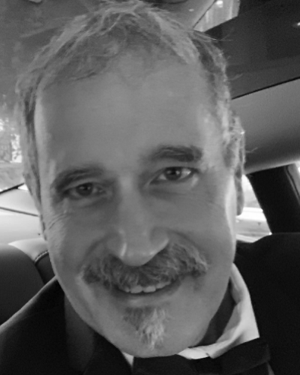
Department of Electrical and Computer Engineering, The University of Texas at Austin, Austin, TX, USA
Alan C. Bovik (Fellow, IEEE) is currently the Cockrell Family Regents Endowed Chair Professor with The University of Texas at Austin. His book include The Essential Guides to Image and Video Processing. His research interests include image processing, digital photography, digital television, digital streaming video, social media, and visual perception. As an elected member of the United States National Academy of Engineer...Show More
Alan C. Bovik (Fellow, IEEE) is currently the Cockrell Family Regents Endowed Chair Professor with The University of Texas at Austin. His book include The Essential Guides to Image and Video Processing. His research interests include image processing, digital photography, digital television, digital streaming video, social media, and visual perception. As an elected member of the United States National Academy of Engineer...View more

Department of Electrical and Computer Engineering, The University of Texas at Austin, Austin, TX, USA
Avinab Saha received the Bachelor of Technology degree (Hons.) in electronics and electrical communication engineering from the Indian Institute of Technology Kharagpur, India, in 2019. He is currently pursuing the Ph.D. degree with the Department of Electrical and Computer Engineering, The University of Texas at Austin. He joined the Laboratory for Image and Video Engineering (LIVE), The University of Texas at Austin, in 2021. Prior to joining LIVE, he worked as a Research Engineer with Samsung Research, where he worked on image and video enhancement applications for Samsung mobile phones. His research interests include machine learning, computer vision, image and video engineering, and computational visual neuroscience.
Avinab Saha received the Bachelor of Technology degree (Hons.) in electronics and electrical communication engineering from the Indian Institute of Technology Kharagpur, India, in 2019. He is currently pursuing the Ph.D. degree with the Department of Electrical and Computer Engineering, The University of Texas at Austin. He joined the Laboratory for Image and Video Engineering (LIVE), The University of Texas at Austin, in 2021. Prior to joining LIVE, he worked as a Research Engineer with Samsung Research, where he worked on image and video enhancement applications for Samsung mobile phones. His research interests include machine learning, computer vision, image and video engineering, and computational visual neuroscience.View more

Department of Electrical and Computer Engineering, The University of Texas at Austin, Austin, TX, USA
Yu-Chih Chen received the B.S. degree in computer science and information engineering from the National Taiwan University of Science and Technology, Taipei, Taiwan, in 2017, and the M.S. degree in engineering science and ocean engineering from National Taiwan University, Taipei, in 2019. She is currently pursuing the Ph.D. degree with the Laboratory for Image and Video Engineering (LIVE), The University of Texas at Austin. Her research interests include perceptual image and video quality assessment, deep learning, and image processing.
Yu-Chih Chen received the B.S. degree in computer science and information engineering from the National Taiwan University of Science and Technology, Taipei, Taiwan, in 2017, and the M.S. degree in engineering science and ocean engineering from National Taiwan University, Taipei, in 2019. She is currently pursuing the Ph.D. degree with the Laboratory for Image and Video Engineering (LIVE), The University of Texas at Austin. Her research interests include perceptual image and video quality assessment, deep learning, and image processing.View more

Meta Platforms Inc., Menlo Park, CA, USA
Chase Davis is currently a Product Manager of Meta Platforms Inc., working on media infrastructure, graphics, and real-time technologies for games and video streaming. His past works involve remote rendering, low-latency streaming, edge computing, and distributed media caching systems at scale.
Chase Davis is currently a Product Manager of Meta Platforms Inc., working on media infrastructure, graphics, and real-time technologies for games and video streaming. His past works involve remote rendering, low-latency streaming, edge computing, and distributed media caching systems at scale.View more

Meta Platforms Inc., Menlo Park, CA, USA
Bo Qiu received the Ph.D. degree in nanomaterials engineering from Purdue University. He is currently a Software Engineer with Meta Platforms Inc. His recent work spans cloud gaming, pixel quality metrics, realistic avatars, VR/AR, and GenAI. Prior to Meta, he worked with Intel as a Software Architect and Qualcomm as a Product Design Engineer. Before joining the industry, he was a Postdoctoral Associate in nanomaterials engineering with MIT.
Bo Qiu received the Ph.D. degree in nanomaterials engineering from Purdue University. He is currently a Software Engineer with Meta Platforms Inc. His recent work spans cloud gaming, pixel quality metrics, realistic avatars, VR/AR, and GenAI. Prior to Meta, he worked with Intel as a Software Architect and Qualcomm as a Product Design Engineer. Before joining the industry, he was a Postdoctoral Associate in nanomaterials engineering with MIT.View more

Meta Platforms Inc., Menlo Park, CA, USA
Xiaoming Wang received the B.S. degree in computer science and the M.S. degree in electronic engineering from the Beijing University of Posts and Telecommunications, Beijing, China, in 1999 and 2002, respectively, and the Ph.D. degree in computer science from Texas A&M University, College Station, in 2009. He is currently working with Meta Platforms Inc., Menlo Park, CA, USA. His research interests include peer-to-peer systems, probabilistic analysis of computer networks, and topology modeling.
Xiaoming Wang received the B.S. degree in computer science and the M.S. degree in electronic engineering from the Beijing University of Posts and Telecommunications, Beijing, China, in 1999 and 2002, respectively, and the Ph.D. degree in computer science from Texas A&M University, College Station, in 2009. He is currently working with Meta Platforms Inc., Menlo Park, CA, USA. His research interests include peer-to-peer systems, probabilistic analysis of computer networks, and topology modeling.View more

Meta Platforms Inc., Menlo Park, CA, USA
Rahul Gowda received the M.S. degree from Arizona State University, Tempe, AZ, USA, in 2009. He is currently with Meta Platforms Inc., Menlo Park, CA, USA. His research interests include scaling rich interactive metaverse and XR experiences, digital humans, and XR systems.
Rahul Gowda received the M.S. degree from Arizona State University, Tempe, AZ, USA, in 2009. He is currently with Meta Platforms Inc., Menlo Park, CA, USA. His research interests include scaling rich interactive metaverse and XR experiences, digital humans, and XR systems.View more

Meta Platforms Inc., Menlo Park, CA, USA
Ioannis Katsavounidis (Senior Member, IEEE) is currently a part of the Video Infrastructure Team, leading technical efforts in improving video quality and quality of experience across all video products with Meta. Before joining Meta, he spent three and half years with Netflix, contributing to the development and popularization of VMAF, Netflix’s open-source video quality metrics, and inventing the dynamic optimizer, a shot-based perceptual video quality optimization framework that brought significant bitrate savings across the whole streaming spectrum and awarded Netflix two technical Emmys in 2020. He was a Professor with the Electrical and Computer Engineering Department, University of Thessaly, Greece, teaching video compression, signal processing, and information theory for eight years. He was one of the co-founders of Cidana, a mobile multimedia software company in Shanghai, China. He was the Director of Software for Advanced Video Codecs with InterVideo, the makers of WinDVD, the most popular SW DVD player, in the early 2000’s, and he has also spent four years working in high-energy experimental physics in Italy. He has over 150 publications, including 50 patents. His research interests lie in video coding, quality of experience, adaptive streaming, and energy-efficient HW/SW multimedia processing. He is one of the co-chairs of statistical analysis methods (SAM) and no-reference metrics (NORM) groups with the Video Quality Experts Group (VQEG). He is actively involved within the alliance for open media (AOM) as the Co-Chair of the Software Implementation Working Group (SWIG).
Ioannis Katsavounidis (Senior Member, IEEE) is currently a part of the Video Infrastructure Team, leading technical efforts in improving video quality and quality of experience across all video products with Meta. Before joining Meta, he spent three and half years with Netflix, contributing to the development and popularization of VMAF, Netflix’s open-source video quality metrics, and inventing the dynamic optimizer, a shot-based perceptual video quality optimization framework that brought significant bitrate savings across the whole streaming spectrum and awarded Netflix two technical Emmys in 2020. He was a Professor with the Electrical and Computer Engineering Department, University of Thessaly, Greece, teaching video compression, signal processing, and information theory for eight years. He was one of the co-founders of Cidana, a mobile multimedia software company in Shanghai, China. He was the Director of Software for Advanced Video Codecs with InterVideo, the makers of WinDVD, the most popular SW DVD player, in the early 2000’s, and he has also spent four years working in high-energy experimental physics in Italy. He has over 150 publications, including 50 patents. His research interests lie in video coding, quality of experience, adaptive streaming, and energy-efficient HW/SW multimedia processing. He is one of the co-chairs of statistical analysis methods (SAM) and no-reference metrics (NORM) groups with the Video Quality Experts Group (VQEG). He is actively involved within the alliance for open media (AOM) as the Co-Chair of the Software Implementation Working Group (SWIG).View more

Department of Electrical and Computer Engineering, The University of Texas at Austin, Austin, TX, USA
Alan C. Bovik (Fellow, IEEE) is currently the Cockrell Family Regents Endowed Chair Professor with The University of Texas at Austin. His book include The Essential Guides to Image and Video Processing. His research interests include image processing, digital photography, digital television, digital streaming video, social media, and visual perception. As an elected member of the United States National Academy of Engineering. For his work in these areas, he was a recipient of the IEEE Edison Medal, IEEE Fourier Award, Primetime Emmy Award for Outstanding Achievement in Engineering Development from the Television Academy, Technology and Engineering Emmy Award from the National Academy for Television Arts and Sciences, Progress Medal from The Royal Photographic Society, Edwin H. Land Medal from Optica, the Norbert Wiener Society Award, and Karl Friedrich Gauss Education Award from the IEEE Signal Processing Society. He has also received about ten “best journal article” awards, including the IEEE Signal Processing Society Sustained Impact Award. He co-founded and was the longest-serving Editor-in-Chief for the IEEE Transactions on Image Processing and created/chaired of the IEEE International Conference on Image Processing which was first held in Austin, TX, USA, in 1994.
Alan C. Bovik (Fellow, IEEE) is currently the Cockrell Family Regents Endowed Chair Professor with The University of Texas at Austin. His book include The Essential Guides to Image and Video Processing. His research interests include image processing, digital photography, digital television, digital streaming video, social media, and visual perception. As an elected member of the United States National Academy of Engineering. For his work in these areas, he was a recipient of the IEEE Edison Medal, IEEE Fourier Award, Primetime Emmy Award for Outstanding Achievement in Engineering Development from the Television Academy, Technology and Engineering Emmy Award from the National Academy for Television Arts and Sciences, Progress Medal from The Royal Photographic Society, Edwin H. Land Medal from Optica, the Norbert Wiener Society Award, and Karl Friedrich Gauss Education Award from the IEEE Signal Processing Society. He has also received about ten “best journal article” awards, including the IEEE Signal Processing Society Sustained Impact Award. He co-founded and was the longest-serving Editor-in-Chief for the IEEE Transactions on Image Processing and created/chaired of the IEEE International Conference on Image Processing which was first held in Austin, TX, USA, in 1994.View more


